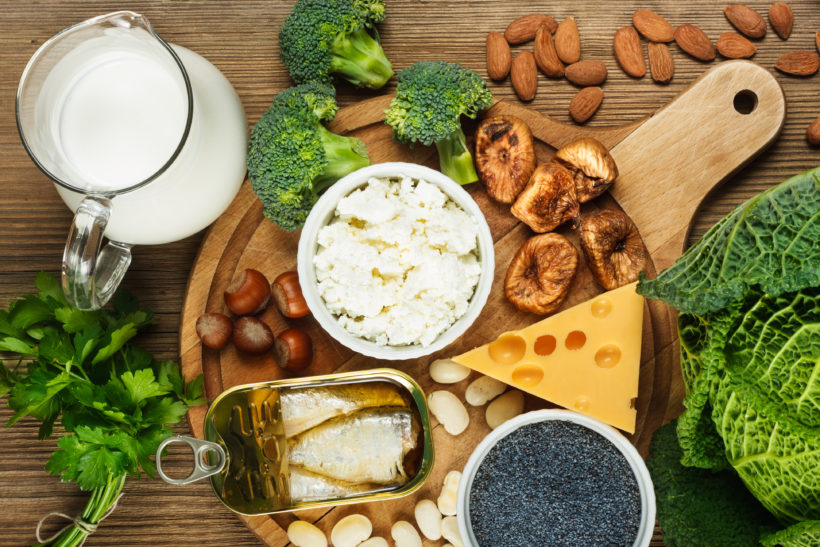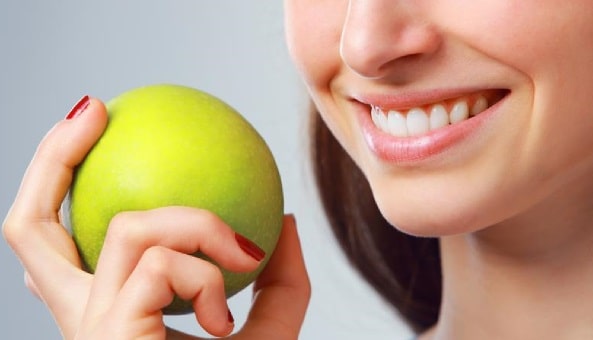The Impact of Raw Vegan Foods on Bone Density & Osteoporosis Prevention

Vegan diet and the risk of osteoporosis is a topic that has attracted the opinion of many experts. They say that if a vegetarian diet contains foods with the amount of protein needed by the body, they can also keep one's bones strong. Meanwhile, researchers believe that people who follow a vegan diet are at risk of bone fractures, especially hip fractures.
Researchers say that lower body mass index as well as calcium and protein deficiency can be risk factors for osteoporosis in these people. Vegetarians can keep their bones strong by consuming vitamins D and B12, as well as eating meat-free foods that contain a healthy amount of protein.
People who don't eat meat, especially vegetarians, may be at risk of breaking bones. Researchers from Oxford University in England reported that vegans are 43% more prone to bone fractures. Also, in some areas, such as hip fracture, the risk of fracture is higher in them.
Studies have shown that people who follow vegetarian diets are more at risk of fractures. According to these surveys, the most fractures were in the hip area. In such a way, the risk of hip fracture in vegans is 2.3 times higher than in people who eat meat.
This study, which is related to the vegan diet and the risk of osteoporosis, was published in the journal BMC Medicine. It analyzed the results of more than 54,000 people involved in the EPIC-Oxford study.
Among these 54,000 people, nearly 30,000 of them had a meat-eating diet. About 8000 people did not eat meat but ate fish. About 15,000 people were vegetarians and nearly 2,000 were vegans. The results of the survey showed that 3,994 fractures occurred among these people. Most fractures were in the hip area, followed by the wrist, arm, ankle and foot.
Vegetarians and people who eat fish but don't eat meat are at higher risk of hip fractures than their meat-eating counterparts, the researchers said. When body mass index (BMI), calcium, and protein intake are taken into account, this risk is somewhat reduced.
Previous studies have shown that low BMI is associated with hip fracture risk. Low intake of calcium and protein can both lead to weak bones. Based on these studies, vegans, who have an average lower BMI and less calcium and protein than meat eaters, have a higher risk of fractures in several areas of their body.
Balanced, mostly plant-based diets can lead to improved nutrient levels. They are even associated with reducing the risk of diseases, including heart disease and diabetes. People should consider the benefits and risks of their diet. They need to make sure they get the calcium and protein they need from their diet and maintain a healthy BMI and weight.
Lauri Y. Wright, PhD, assistant professor of nutrition and dietetics at the University of North Florida, explains why vegetarians are at risk for osteoporosis: "The root cause is partly related to protein and calcium intake, as well as BMI." But in people who follow a vegetarian diet, the consumption of these two is limited. Accordingly, the risk of bone fracture increases in them.
For example, vegetarians may have consumed adequate amounts of calcium. But many plant sources, such as spinach, do not contain as much calcium as dairy products. Vegetarians may have consumed adequate amounts of plant protein, but amino acids from plant sources are not as effective as animal proteins.
But, researchers say, a person may easily consume too much processed vegan junk food, which will have an adverse effect on health. However, when these people focus on whole, plant-based foods, they can reduce complications. People on a vegan diet can get the protein they need from soybeans, beans and whole grains, as well as nuts and seeds. B12 and vitamin D supplements are also recommended for health.
Dana Hones, PhD, is a senior nutritionist at the University of California, Los Angeles, and has been a vegetarian since 2001. Back then, it was much more difficult for vegans to find options for animal products that were fortified with essential vitamins and minerals, he says. But people who wanted to choose a vegan diet had to eat more fruits, vegetables and fortified foods. This is despite the fact that today there are many products that are composed of materials similar to animal products.
He says that choosing the right foods is important for vegetarians to stay healthy. People who want to choose this diet should create a balance between fresh products and some fortified products such as soy milk, almond milk or peanut milk. Even more of these products are enriched with calcium and vitamin D and other important nutrients.
He also advises vegetarians to exercise. even get vitamin D and calcium and consume enough calories.
A vegan diet consists of eating only plant-based foods. In this diet, people avoid consuming all animal products including meat, dairy and eggs. Some people do not even eat honey by following this diet. For some, being vegan is a dietary choice, while for others, it's a lifestyle.
The Impact of Raw Vegan Diet on Dental Health & Oral Hygiene
